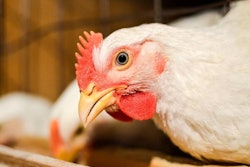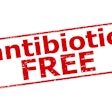
Changing the paradigm of 60 years of using antibiotics in poultry production is quite difficult. However, "we have lost the confidence of the consumer," said Dr. Stephen Collett, clinical associate professor at the University of Georgia, speaking at an Alltech breakfast event at the 2016 International Production & Processing Expo (IPPE) in Atlanta on January 27.
This statement was made in reference to the discussion regarding antibiotic-free production, known as ABF production.
He spoke of two important aspects to consider in order to produce without antibiotics: management of the intestinal flora and control of protozoa and coccidia.
One of the key issues was the analysis of natural intestinal flora against the flora found in the poultry houses, mainly in countries like the U.S., where bedding material of the previous flock stays up to six consecutive cycles. Raising birds in such houses, "is as if the chicken hatches in a natural nest, but with the risk of facing disease."
The integrity of the upper intestinal tract determines performance and growth of the bird in the long term. When handling intestinal flora, the development of an immature to a mature intestinal tract has to be accelerated.
For antibiotic-free production, microflora management is paramount. Collett discussed the recommended method of seed, feed and weed. It refers to seeding the correct intestinal flora, which is a crucial step. Feeding it in the early growing stages by acidification of the intestine with short-chain fatty acids, and weeding, which means rehabilitating or accelerating its evolution.
For this purpose, essential oils play a broad spectrum antimicrobial effect role, with a similar antibiotic action. Additionally, microorganisms tend to adapt to essential oils. Therefore, Collett recommended types of fimbriae blockers or antagonists, consisting of derivatives of yeast cell wall, which are not absorbed, block negative microflora attachment, prevent colonization and reduce ability to replicate.
See all the latest IPPE news.















